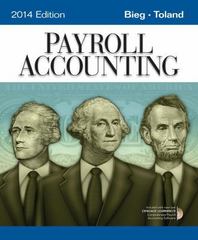Answered step by step
Verified Expert Solution
Question
1 Approved Answer
1.Identify and explain key individual, group and organisational level influences on human behaviour. 2.Identify key implications arising from OB issues. 3.Integrate theory, research and examples
1.Identify and explain key individual, group and organisational level influences on human behaviour.
2.Identify key implications arising from OB issues.
3.Integrate theory, research and examples to illustrate understanding.

Step by Step Solution
There are 3 Steps involved in it
Step: 1

Get Instant Access to Expert-Tailored Solutions
See step-by-step solutions with expert insights and AI powered tools for academic success
Step: 2

Step: 3

Ace Your Homework with AI
Get the answers you need in no time with our AI-driven, step-by-step assistance
Get Started


